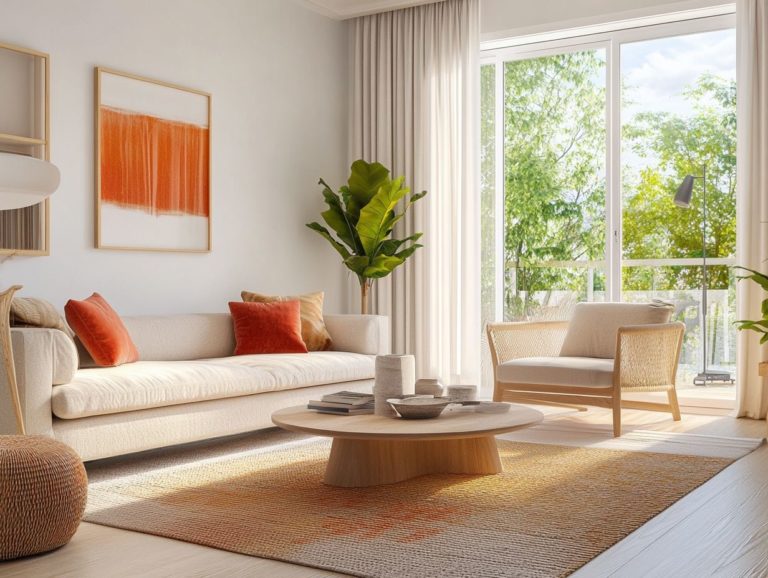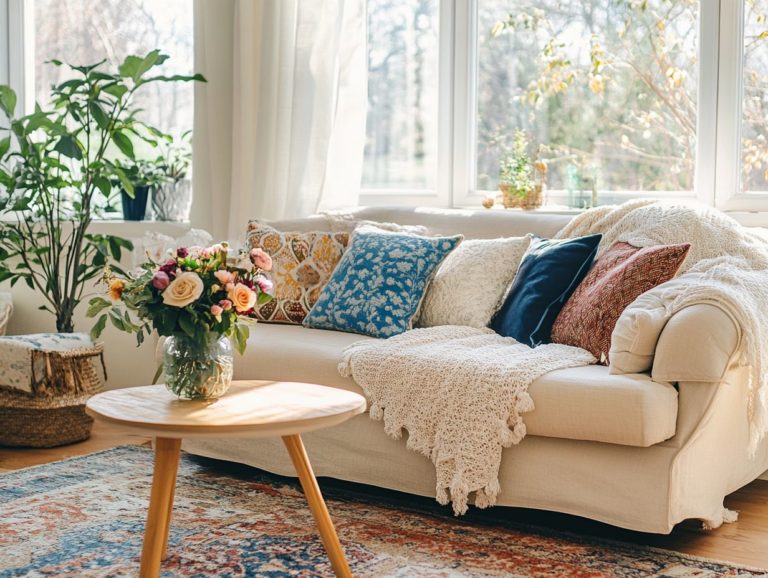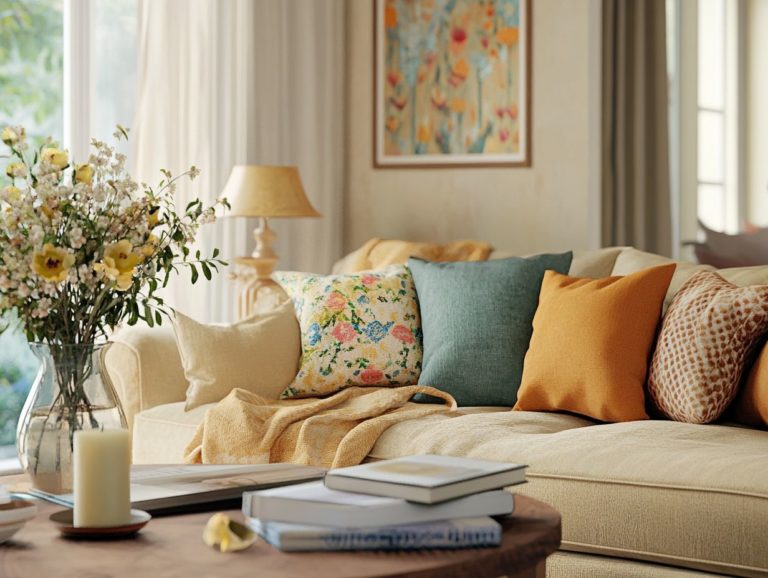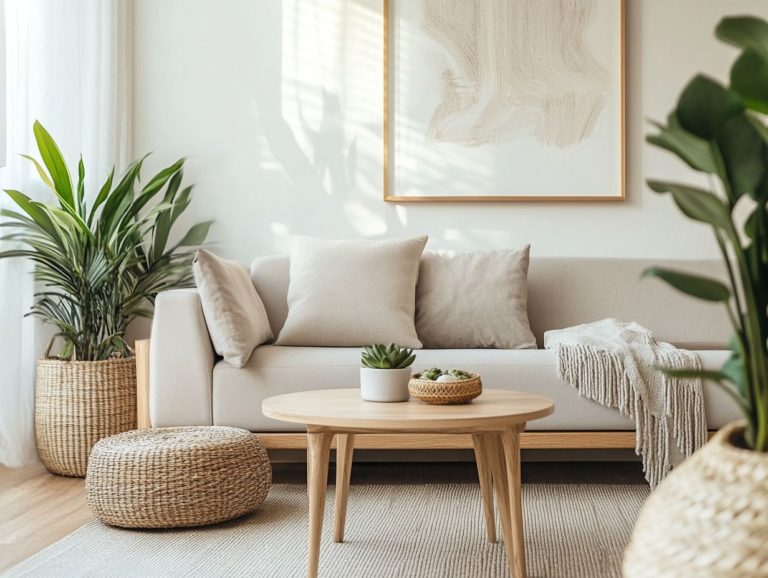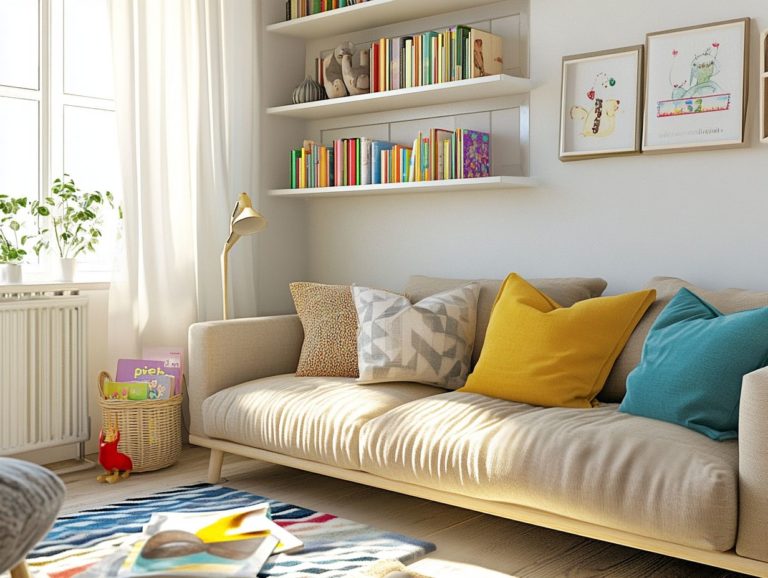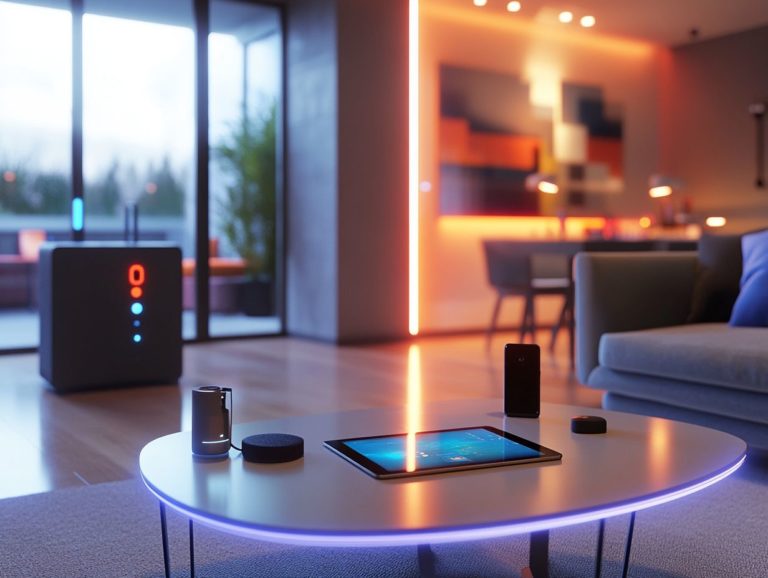5 Questions to Ask Before Staging Your Home
Thinking about selling your home? Staging can truly transform your space into a buyer’s dream, making all the difference in how people perceive it.
Before you stage your home, think about these key questions:
- What s your purpose?
- What are the potential costs?
- How much time will it take?
Key areas to focus on will be highlighted, along with tips to maximize your home s appeal. You’ll also discover common mistakes to avoid, budget-friendly strategies, and the latest trends in staging.
Get ready to boost your home’s appeal and grab the attention of buyers!
Contents
- Key Takeaways:
- 1. What Is the Purpose of Staging Your Home?
- 2. What Are the Costs of Staging Your Home?
- 3. How Long Will the Staging Process Take?
- 4. Key Areas to Focus on When Staging Your Home
- 5. Maximize the Impact of Staging on Potential Buyers
- Benefits of Professional Home Staging
- Common Mistakes to Avoid When Staging Your Home
- How Can You Stage Your Home on a Budget?
- What Are the Latest Trends in Home Staging?
- How Can You Prepare Your Home for Staging?
- What Are the Top Tips for Staging Your Home for a Quick Sale?
- Frequently Asked Questions
- 1. What is home staging and why is it important?
- 2. When is the best time to stage my home?
- 3. How much does home staging typically cost?
- 4. Can I stage my home myself or should I hire a professional?
- 5. Are there specific areas of the home I should focus on when staging?
- 6. Is decluttering really necessary when staging a home?
Key Takeaways:
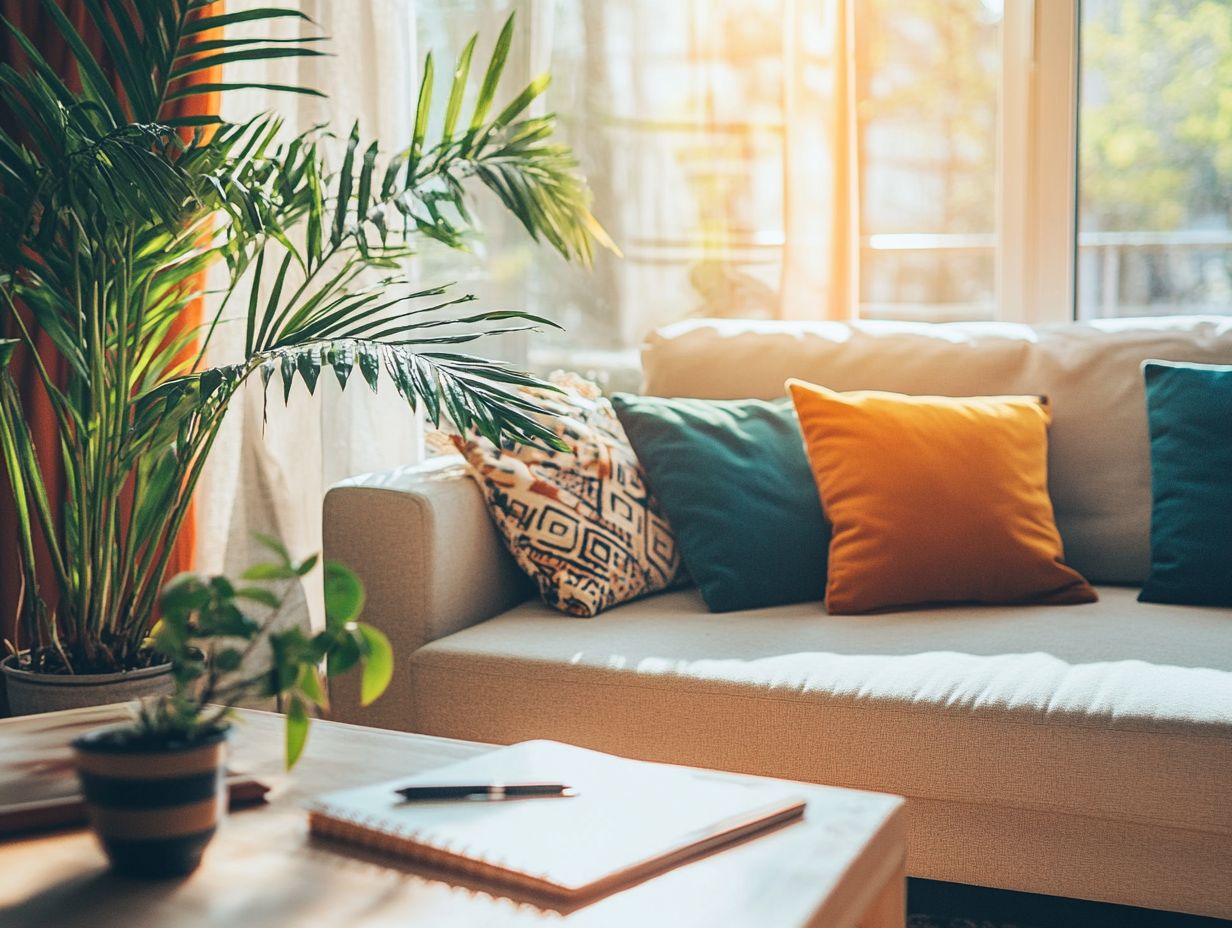
Understand the purpose of staging to showcase your home’s potential to buyers.
Consider the costs of staging and budget accordingly.
Be aware of the time commitment needed for the staging process.
1. What Is the Purpose of Staging Your Home?
Home staging plays a crucial role in the real estate market by increasing how much people think a home is worth. It often results in a higher selling price and reduces the time on the market.
Staging is all about preparing a home for sale in a way that attracts potential buyers and meets their expectations. It highlights the home s unique features through strategic marketing techniques.
The importance of home staging goes beyond mere aesthetics; it creates an inviting atmosphere that resonates emotionally with buyers. When potential homeowners step into a beautifully staged home, they can easily envision their lives unfolding within its walls. This connection makes them feel at home.
Professional staging typically utilizes neutral color palettes, tasteful decor, and thoughtfully arranged layouts that accentuate the positives while downplaying any drawbacks. For instance, using light furnishings to highlight natural light can make a property feel more expansive and inviting.
Effective staging not only piques interest but also encourages buyers to picture their future in that home. This fosters a sense of urgency that can lead to quicker offers and higher bids.
2. What Are the Costs of Staging Your Home?
Understanding the costs associated with staging your home is crucial if you’re looking to invest wisely in the selling process. This involves fees for staging consultations, furniture rentals, and potential repairs or improvements that elevate your property s appeal.
You might also encounter costs for professional photography to effectively showcase your property, along with landscaping services to enhance that all-important curb appeal.
Investing in these elements can really pay off! You can create an inviting atmosphere that resonates with buyers, positioning yourself for a quicker sale at a notably higher price point.
Ultimately, the sum of these staging efforts can lead to more competitive offers, making the investment not just reasonable, but truly worthwhile in the long run.
3. How Long Will the Staging Process Take?
The duration of the home staging process can fluctuate significantly. This depends on various factors, such as the size of your property, the extent of preparations needed, and current market trends that influence how quickly your home can be staged for potential buyers.
You can expect a timeline that includes several key preparation steps, taking anywhere from a few days to a couple of weeks. Most homeowners begin by decluttering their space to create an open and inviting atmosphere. Once that’s done, a thorough cleaning follows to enhance the property’s appeal.
Your timeline may stretch if you need to source specialty items or if extensive staging is required to showcase your property’s best features. The availability of furniture can also affect how quickly your home can be attractively presented to the market.
4. Key Areas to Focus on When Staging Your Home
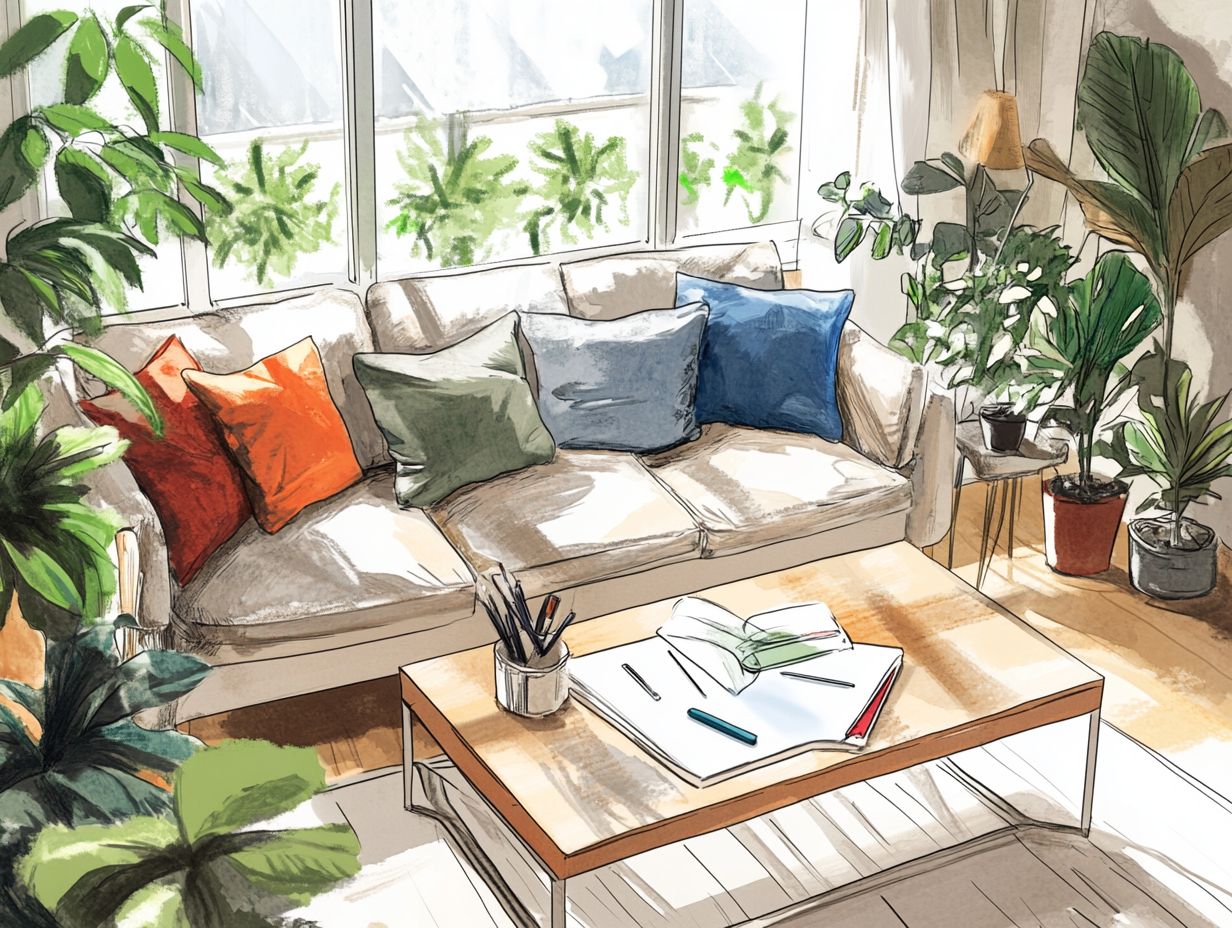
When staging your home, concentrate on key areas like:
- Decluttering
- Cleaning
- Depersonalizing
These elements enhance overall presentation and curb appeal, ensuring a positive first impression on potential buyers.
Prioritize the living room, the heart of the home. It should feel inviting and spacious. Remove excess furniture to create an open flow that encourages movement and comfort.
The kitchen is often a focal point for buyers. Make sure it is spotless. Clear the countertops of personal items and ensure all appliances shine.
Don t overlook outdoor spaces! Tidy up gardens, introduce fresh plants, and arrange patio furniture to create a welcoming retreat. Transforming these areas will make your home more appealing and livable.
5. Maximize the Impact of Staging on Potential Buyers
To maximize the impact of staging, create a warm feeling that resonates with buyers. Showcase the property through staging styles that match buyer expectations.
Consider techniques like lighting, which can dramatically change a room’s ambiance. Soft, warm hues make spaces feel inviting, while bright, white lights lend a modern aesthetic.
Choosing the right color palette is crucial. Neutral tones serve as a blank canvas, letting buyers envision their own furnishings and decor.
Think about strategic decor choices. Fresh flowers or stylish, understated artwork can highlight the home s best features. Create cozy reading nooks or outdoor oasis areas that invite relaxation.
These thoughtful touches leave a lasting impression, making buyers more likely to see themselves in the space.
Benefits of Professional Home Staging
Professional home staging offers numerous benefits, including:
- Deep market insight
- Keen assessment of your property
- Access to a vast array of staging inventory
These elements can enhance your property s appeal and potentially increase its selling price. Professional stagers understand current trends and buyer preferences, crafting visually stunning spaces that leave a lasting impression.
The strategic use of colors, furniture arrangements, and decor transforms your property into a warm and inviting haven. Homeowners frequently share success stories of quicker sales and higher offers post-staging.
One delighted homeowner noted, “I was amazed at how the staging made my home feel larger and more welcoming within days, I received multiple offers above asking price!” Such remarkable outcomes emphasize the invaluable role of expert stagers in real estate.
Common Mistakes to Avoid When Staging Your Home
Avoiding common mistakes is essential for a successful sale. Oversights in your staging checklist can lead to misunderstandings and pricing objections.
Critical areas like entryways, kitchens, and bathrooms often get overlooked. Declutter these spaces effectively; excessive personal items or disorganized areas can distract potential buyers.
Employ strategic furniture placement to maximize space while showcasing your home’s best features. Communicate effectively with a staging expert to clarify your needs and preferences.
By proactively addressing these pitfalls, you can create an inviting atmosphere, enhancing overall appeal and encouraging quicker, more favorable offers.
Start staging your home today for a faster sale!
How Can You Stage Your Home on a Budget?
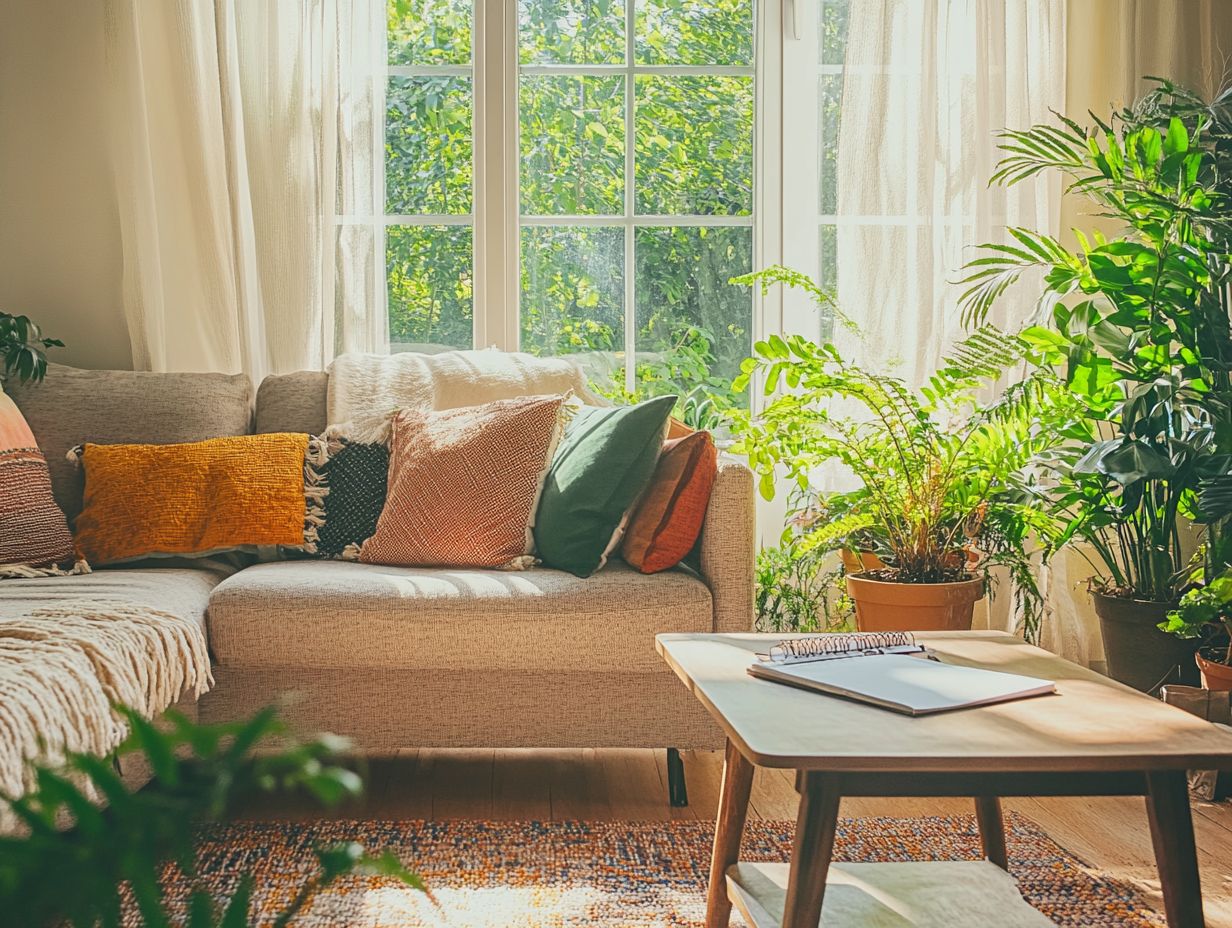
Staging your home on a budget is within your reach with strategic planning and creativity. By focusing on effective furniture arrangements and simple upgrades, you can enhance your space’s market appeal without straining your wallet.
Utilize what you already own to create a warm and inviting atmosphere that attracts potential buyers. Rearranging existing furniture can optimize space and improve flow, making each room feel larger and more functional.
Additionally, small touch-ups like a fresh coat of paint or updated hardware can yield impressive results. Incorporating affordable decor items, such as plants or second-hand artwork, can also breathe new life into your space.
These thoughtful adjustments can significantly impact buyer interest and showcase your home s most appealing features.
What Are the Latest Trends in Home Staging?
Staying informed about new styles in home staging is crucial for appealing to today s buyers. Innovative interior design concepts can greatly enhance a property s market appeal.
Minimalism has recently emerged as a powerful aesthetic, inviting potential buyers to envision themselves in uncluttered, serene spaces. Sustainable design practices, like using reclaimed materials and eco-friendly furnishings, resonate with a growing demographic that values environmental responsibility.
The integration of technology like virtual staging and 3D tours allows buyers to experience properties from home. By incorporating these trends, you can create inviting spaces that showcase the home s potential while aligning with modern values and preferences.
Ultimately, using this approach can lead to a quicker sale.
How Can You Prepare Your Home for Staging?
Preparing your home for staging requires several essential steps to set the stage for success. This includes thorough cleaning, decluttering, and addressing necessary repairs, all contributing to an inviting and polished presentation that potential buyers will appreciate. For more details on this process, check out our guide on how to successfully stage your home.
Before starting the staging process, it s crucial to create a clean slate. Remove personal items, excess furniture, and clutter, ensuring that every space feels open and welcoming.
A well-organized environment helps prospective buyers envision their lives within those walls. Seeking a staging consultation can provide invaluable insights, including how to evaluate your home for staging needs, pinpointing specific areas that may need extra attention or a fresh perspective.
This professional guidance enhances the property s appeal and strategically directs your efforts to maximize the home s potential during viewings.
What Are the Top Tips for Staging Your Home for a Quick Sale?
To ensure a swift sale, embracing top tips for staging your home can create a lasting first impression and enhance its emotional appeal, aligning with market insights and buyer expectations.
Start by maximizing natural light, which can transform your space and make it irresistibly inviting. Simple adjustments like opening curtains and strategically placing mirrors can brighten your rooms and create a sense of openness.
Next, optimize your furniture arrangements to promote flow, helping potential buyers envision themselves comfortably living in the space. Decluttering and rearranging pieces to highlight each room’s key features is essential.
Incorporating inviting decor, such as fresh flowers or cozy throws, adds personality, making the property feel warm and welcoming. Ultimately, understanding what buyers typically desire think modern, functional spaces will significantly increase your chances of achieving a quick sale.
Frequently Asked Questions
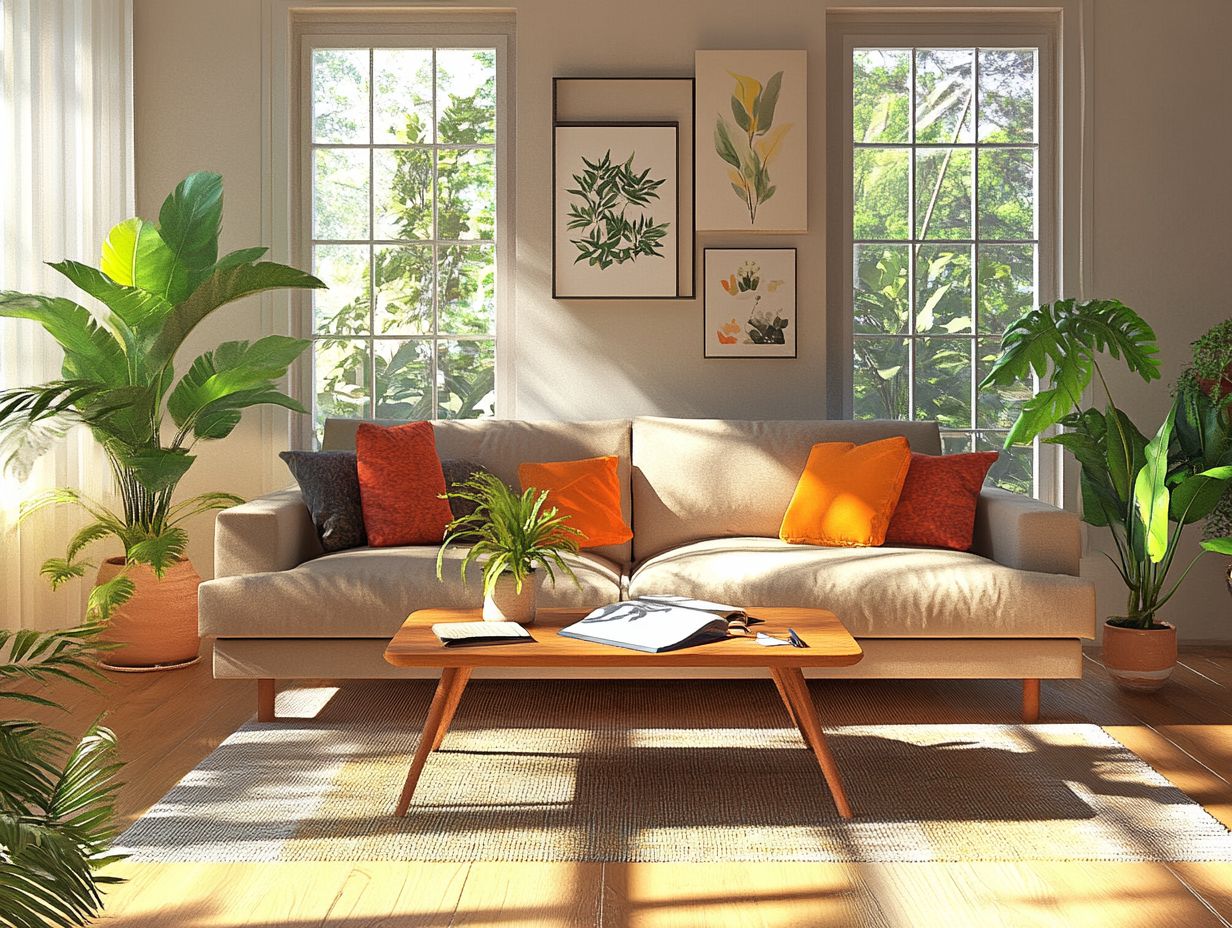
1. What is home staging and why is it important?
Home staging is the process of preparing a home for sale by decluttering, organizing, and decorating it to appeal to potential buyers. It is important because it showcases the best features of a home, making it more attractive to buyers. This can lead to a quicker sale and a higher selling price.
2. When is the best time to stage my home?
The best time to stage your home is before it goes on the market. This gives you time to make repairs, declutter, and prepare for showings.
If your home is already listed, don t worry! It s still a great time to stage it and make improvements that can help it sell faster.
3. How much does home staging typically cost?
The cost of home staging varies based on your home’s size, staging extent, and location. On average, expect to pay between $500 and $5,000.
Consider the potential return on investment. A well-staged home often sells for a higher price and faster.
4. Can I stage my home myself or should I hire a professional?
You can stage your home yourself, but hiring a professional often yields better results. Professionals have the experience to make your home more appealing to buyers.
They see details that homeowners might miss and have access to furniture and decor that enhance your space.
5. Are there specific areas of the home I should focus on when staging?
Different homes have unique features, but some areas are universally important. Pay special attention to the entryway, living room, kitchen, master bedroom, and bathrooms.
These spaces attract potential buyers the most, so make them inviting and appealing.
6. Is decluttering really necessary when staging a home?
Yes! Decluttering is essential when staging a home. Clutter can make your home look smaller and can distract buyers from its true potential.
By removing excess items and organizing the space, you help buyers envision themselves living there.

